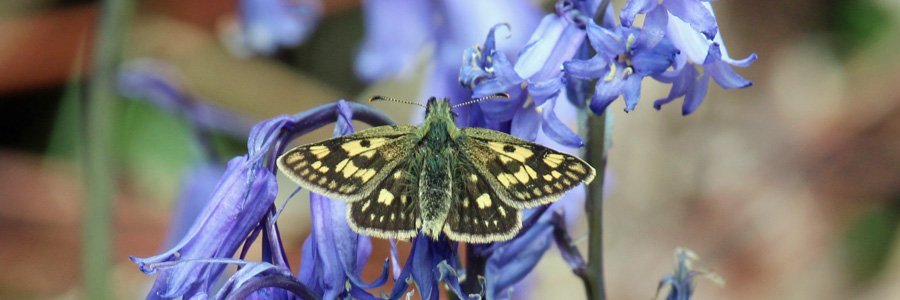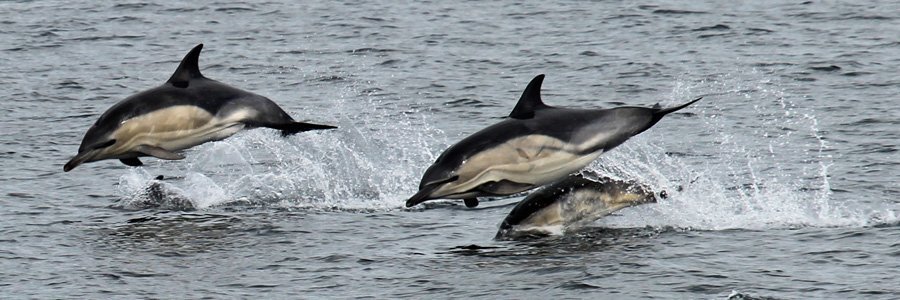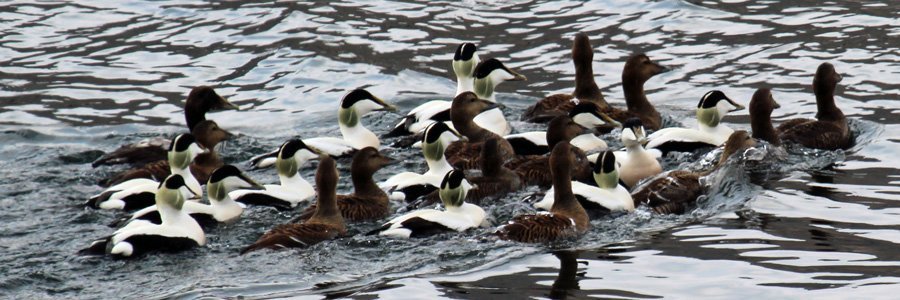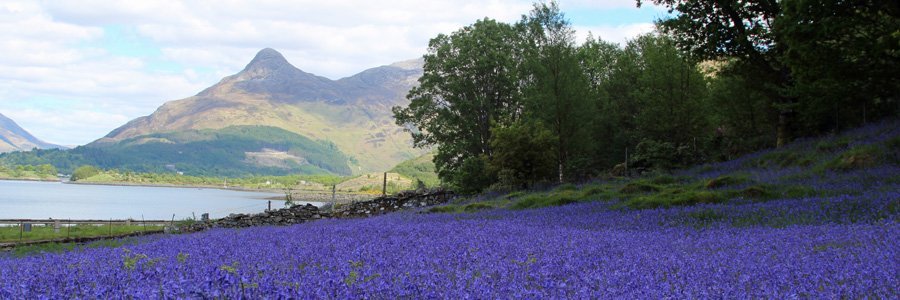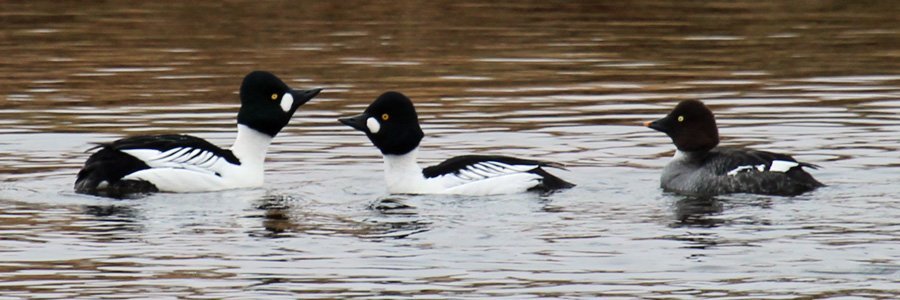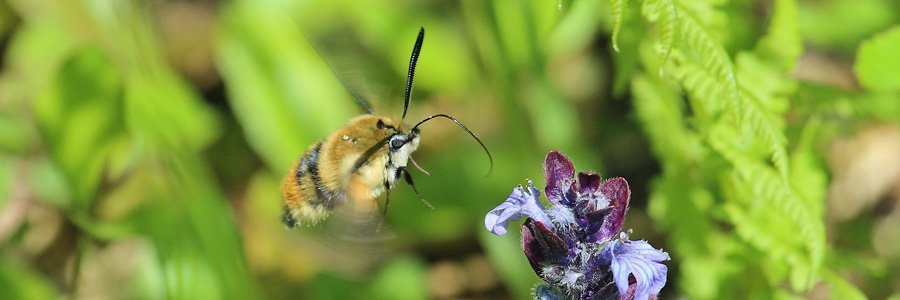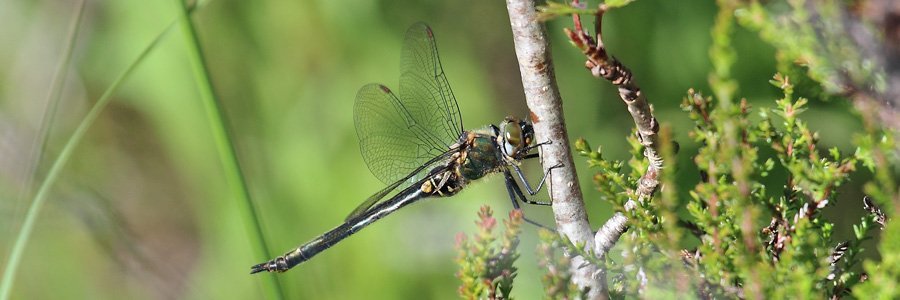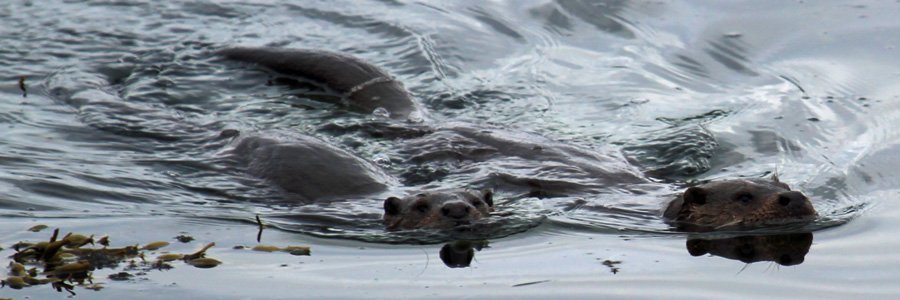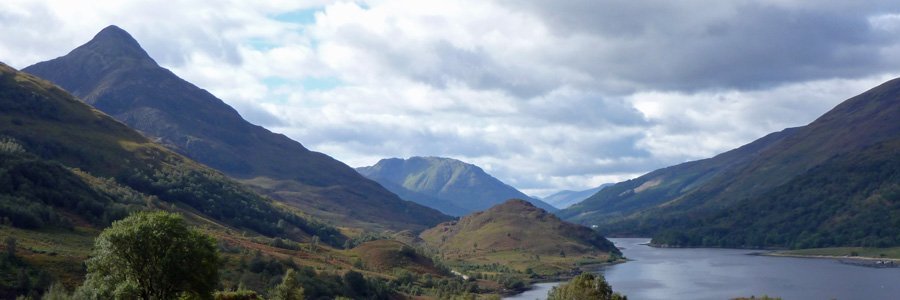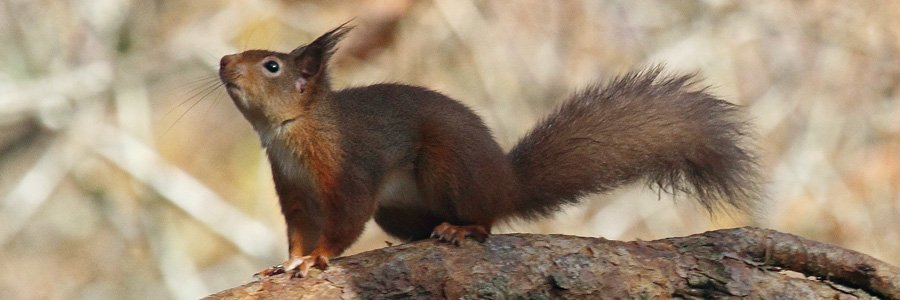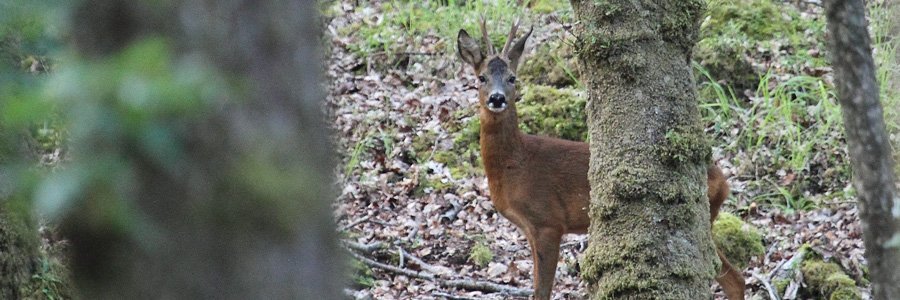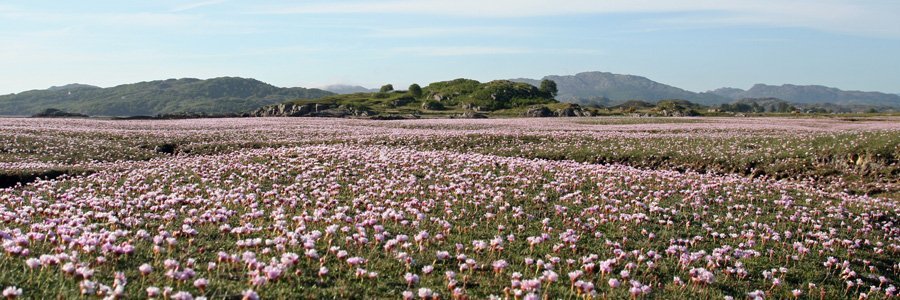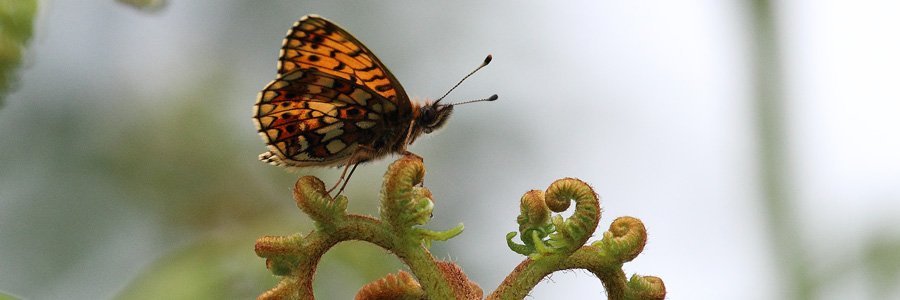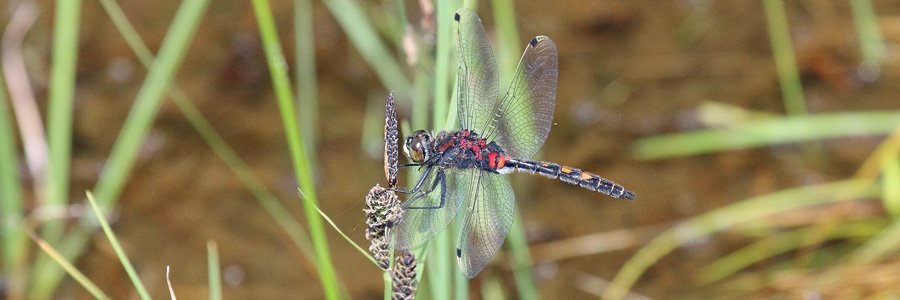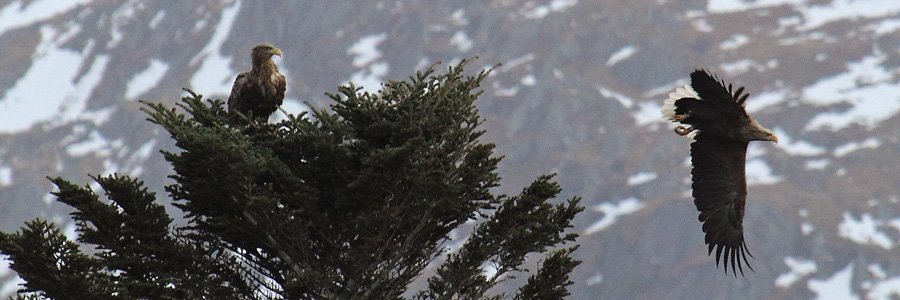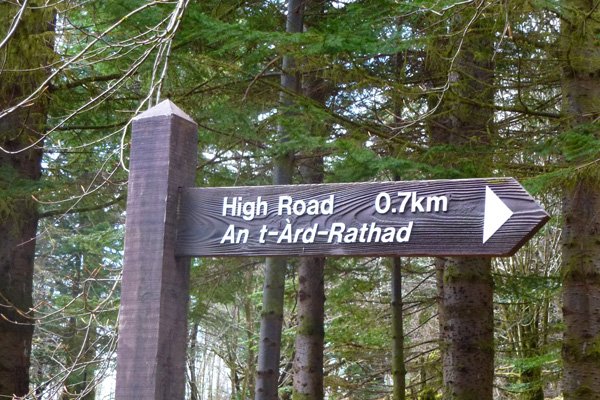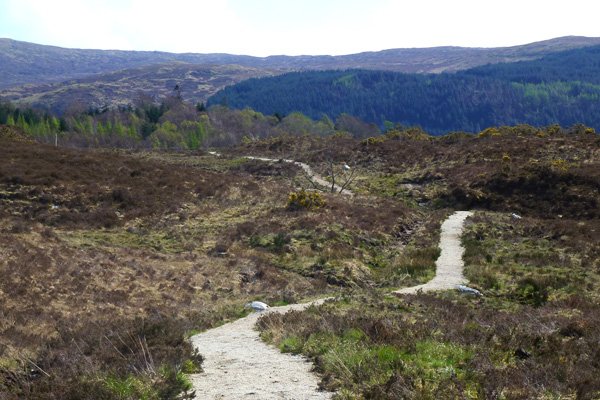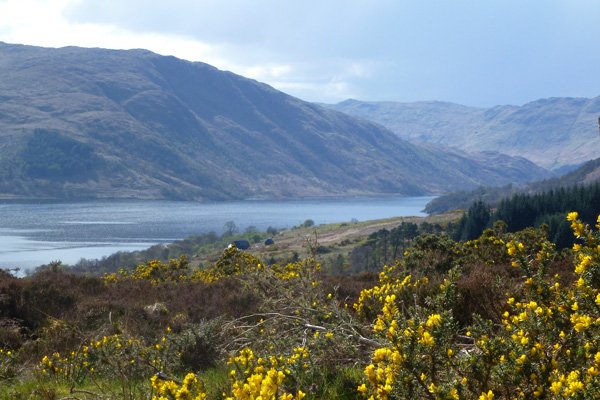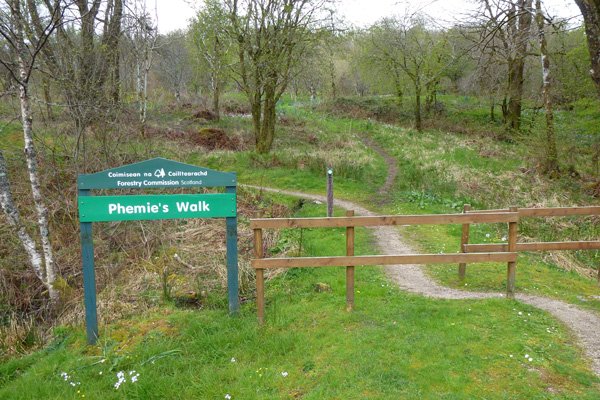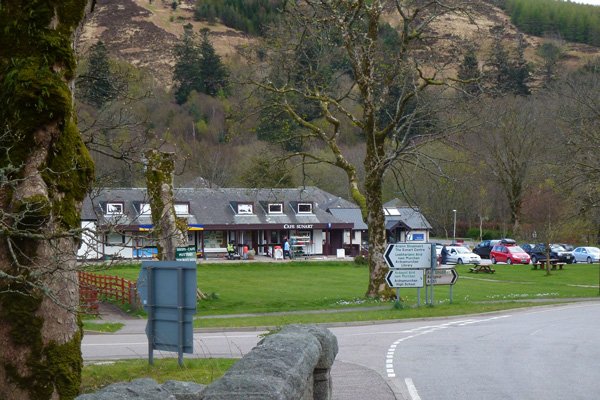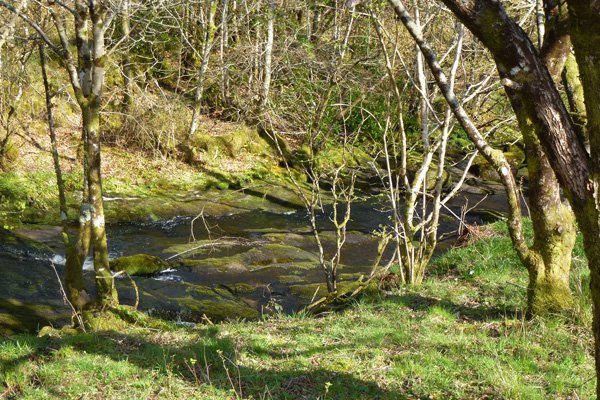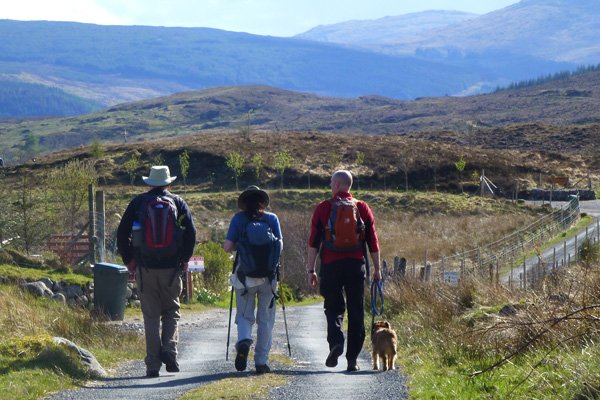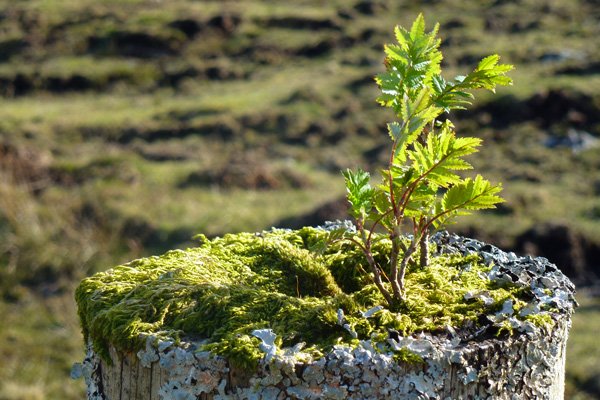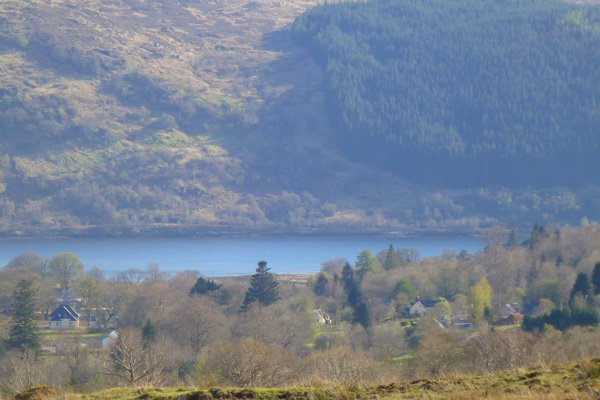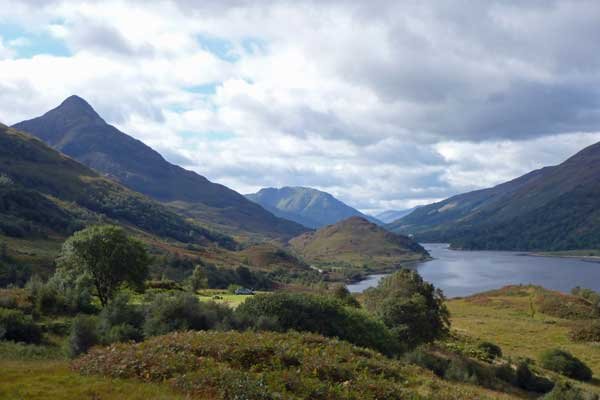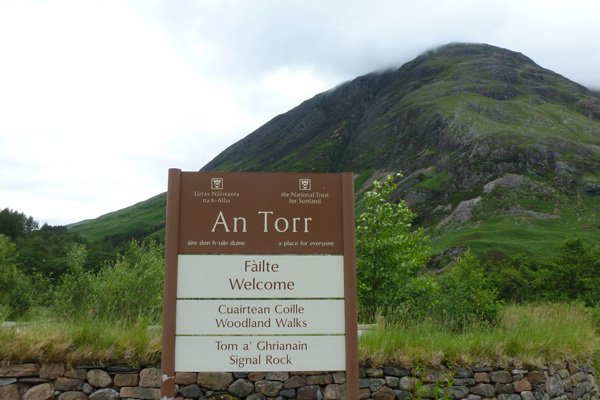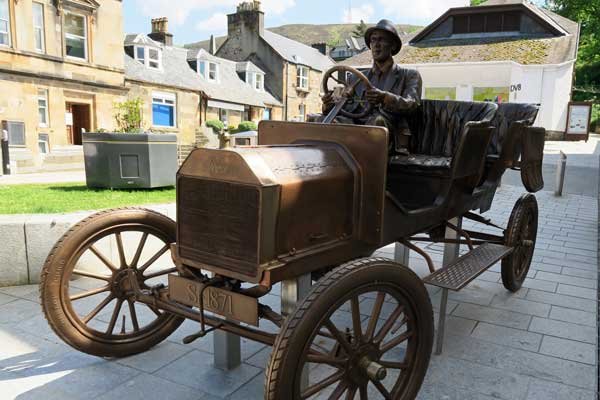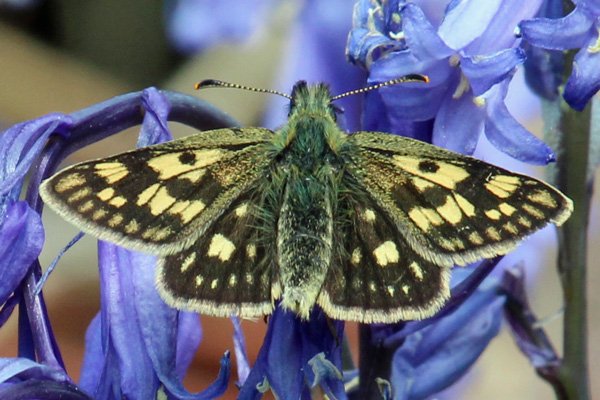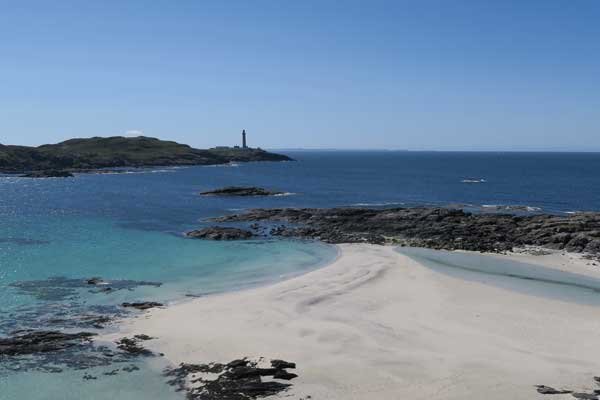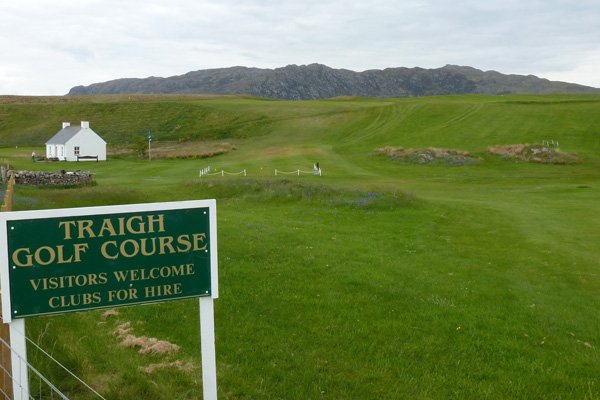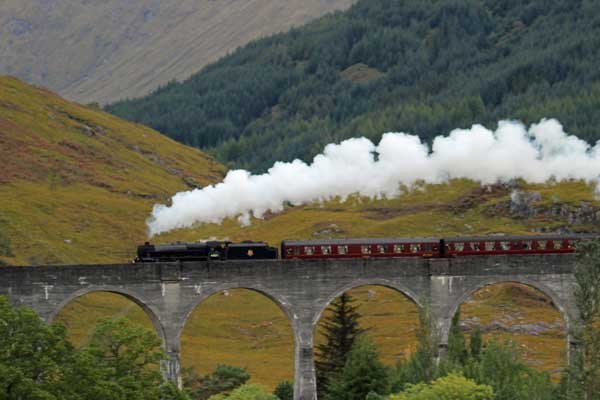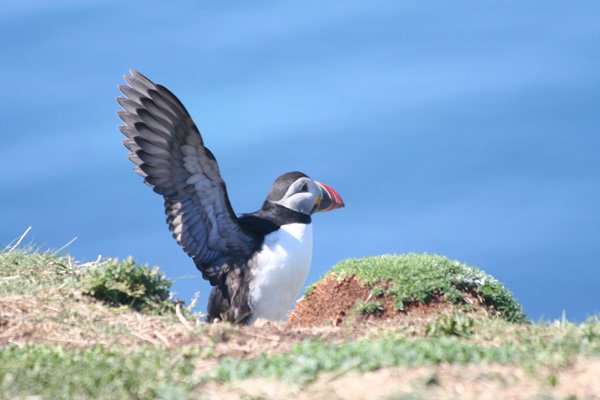Ardnastaing and Scotstown
A lovely circular walk over moorland, woodland and along the banks of the Strontian River to Scotstown and Ardnastaing. The walk provides a good opportunity to enjoy the fauna and flora associated with deciduous and coniferous woodland, heath land and riparian habitats. The ground flora is particular lovely in Spring and Summer, with range of spring woodland flowers and, later in the year, a resplendence of orchids and the heath flora. A few possible mammal and bird sightings include red deer, siskin, skylark, pipits, wheatear, stonechat, dipper, hooded crow, raven, buzzard and golden eagle, Look out for Chequered Skipper, Marsh Fritillary and Narrow-bordered Bee Hawk moth in early summer (May to July) on Ardnastaing Common.
There is also an opportunity for a lunch or coffee stop in the village Strontian.
Route Details
1. Take the track by the Ben View Hotel, just off the A861 at Ardnastang. Park at the lay-by near at the top of the track. Continue up the track for about 100 yards before taking a turning on the right, signposted Strontian. Head along the gravel path across the Calluna dominated heath, intermixed with Erica species and Gorse (Ulex europea). This section of the walk is through the common grazing land of Ardnastaing, so please keep your dog on a lead. There are good views of Loch Sunart, the surrounding hills and the village of Strontian. Look and listen out for pipits, stonechats and skylarks on the heath.
2. Cross over a style at the far end, where the heath is fringed by birchwood and coniferous plantation. There is a short section of boardwalk followed by a gravel path through birch woodland and coniferous plantation (spruce and larch). This is a lovely section, carpeted with a diversity and abundance of bryophytes. The path soon descends gently into beech woodland whose trunks are strewn with mosses and foliose Lobarion and Parmelion lichen communities; a wondrous sight.
The path zigzags through the woodland, with some fine specimen conifers, with a carpet of bluebell (Hyacinthoides non-scripta), wood sorrel (Oxalis acetosella), primrose (Primula vulgaris), violets (Viola spp) and lesser celandine (Ranunculus ficaria), resplendent in Spring. Look out for epiphytic ferns, and bryophytes cloaking the ancient trees.
3. Turn left at the T-junction, passing through coniferous woodland, interspersed with some fine specimen trees of sycamore, oak and beech, with willow in the wetter areas. The path veers left before joining a boardwalk section through a dense section of birch/willow woodland.
4. The path continues to wind down the hill, with some flat sections. There is a welcome bench on route affording good views of the hills and a section of Loch Sunart; a lovely spot for a short break.
5. After passing through a gap in a boundary wall, turn right to descend into the village of Strontian.
6. Turn right at the next T junction, passing through the Marie Currie Field of Hope, awash with daffodils in Spring and with numerous cultivated trees and shrubs (part of Phemies Walk).
7. Exit at the barrier and turn left on to the road. Take another left onto the Bellsgrove/ Polloch road. This is a lovely section of road skirting the oligiotrophic Strontian River, designated as an SSSI, and whose banks abound with wildflowers in Spring.
8. Follow the road round at the bend, ignoring the turning to Aryndle, and continue up hill. This section of the road follows a boulder strewn, tributary of the Strontian River, whose banks are strewn with yellow archangel (Lamiastrum galeobdolon), bluebell (Hyacinthoides non-scripta) and lesser celandine (Ranunculus ficaria) in Spring, interspersed with hazel copse, willow and birch. The water courses cuts deep into the bedrock, the steep sides providing an ideal habitat for mosses and liverworts. Look out for dippers on route.
9. The route continues uphill along the road from the village of Scotstown, passed a phone box until a tarmac track is reached on the left (signposted Heatherbank B&B and Ardnastaing 2.5 miles). The track passes in front of some houses before descending through heathland/rough pasture. There are some lovely views of the surrounding hills both ahead and behind.
10. Continue along the track, passing through a metal gate and then across open heath. Look out for red deer, skylarks, pipits, wheatear, stonechat, hooded crow, raven, buzzard and golden eagle (if lucky). Depending on season, the heath is tinted with the flowers of lousewort (Pedicularis sylvatica), butterwort (Pinguicula vulgaris), northern marsh orchid (Dactylorhiza purpurella), heath spotted orchid (Dactylorhiza maculata) and butterfly orchids (Platanthera spp).
11. Pass through another metal gate and over a stone bridge across the river. The path continues through heath/rough pasture. Keep left path where the path diverges and continue straight ahead. This is another lovely section of the walk with fabulous views ahead and behind.
12. The path passes by a house, before descending to a cattle grid and then by the side of a spruce/larch plantation. Pass by the path taken earlier and return to the lay-by at the start of the walk.
starting grid ref
Links to useful Information
terrain
length
Safety
Route details and information are provided in good faith. All walking is potentially dangerous and it is your responsibility to ensure that you are properly dressed and equipped, have a map and compass, have checked and planned your route in advance and are able to navigate effectively. Maps displayed on these walking pages are intended as an overview of the walk and are NOT suitable for navigation. Please follow the Scottish Outdoor Access Code and respect landowners and residents' privacy. Always check the weather forecast and let others know if you are walking in the hills.

